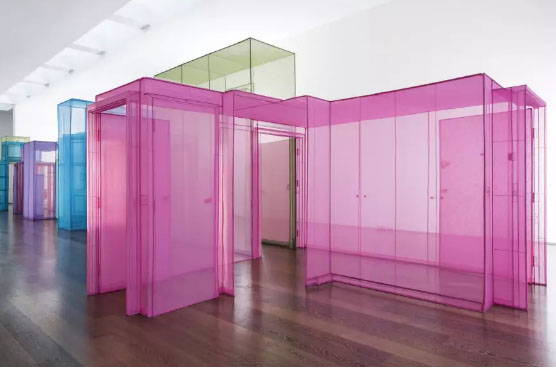CulBeat Express
2017.02.01 11:45
서도호 개인전 '패시지'@빅토리아 미로, 런던(2/1-3/18)
조회 수 2627 댓글 0
Do Ho Suh: Passage/s
Exhibition 1 February – 18 March 2017
Victoria Miro, 16 Wharf Road, London N1 7RW

Do Ho Suh’s first exhibition with Victoria Miro will feature new fabric sculptures conceived especially for the
galleries, including a walk-through configuration of Hubs, and a range of his works on paper. Exhibited for the
first time will be works created by a new process in which Suh’s signature architectural pieces are compressed
into two-dimensional ‘drawings’.
The exhibition will be the first presentation of Suh’s work in London since Staircase-III was displayed as part of Tate
Modern’s Collection Displays in 2011, and the most extensive presentation of his work in the UK since his Serpentine
Gallery survey in 2001.
Inspired by his peripatetic life – leaving his native South Korea to study and live in the United States, he has more
recently moved between New York, Seoul and London – Suh has long ruminated on the idea of home as both a physical
structure and a lived experience, the boundaries of identity and the connection between the individual and the group
across global cultures. Meticulously replicating the architecture of the places in which he has lived, such as his
childhood home and Western apartments, Suh’s translucent fabric structures give form to ideas about migration,
transience and shifting identities. These ideas are further conveyed in his Hub works, where transitory, connecting
spaces speak metaphorically about movement between cultures and the blurring of public and private, as well as
reflecting on the passage of the artist’s own life and the experience of a person who has developed roots in multiple
countries.
The artist’s move to London provides a thematic and emotional touchstone for this exhibition. Hub, London Apartment,
2015, which was first exhibited in the artist’s solo exhibition at the Contemporary Art Center Cincinnati in 2016, is a
partial representation of Suh’s London home. It will be joined by other Hubs – corridor-like points of intersection
between rooms – including an evocation of his London studio to create a walk-through configuration of structures
occupying the 25-metre-long Gallery II, Wharf Road. Created from stitched planes of translucent, coloured polyester
fabric the Hubs – delicately precise, weightless impressions – seem to exist between imagination and reality, past and
present. To move through them is to experience a distinct emotional register, a sense of being in flux, crossing
boundaries and moving between psychological states.
The idea of transient experience as both a sustained emotional state and an act of self-discovery is a theme shared by
a three-channel video in which the artist, accompanied by his daughters, explores the streets around his London home.
Suh’s move to London approximately five years ago coincided with the arrival of his first daughter. Attaching three
GoPro video cameras to a stroller, in the film he captures a newly discovered locale from three different viewpoints
while ambient sound from the street and conversations between father and daughters, in English and Korean, signal
the crossing of cultural and geographical boundaries.
Suh’s work always stems from the measuring of space and the processes, rational yet sensual, that enable him to
determine his surroundings. Recently, Suh has completed a major work, the Rubbing/Loving Project, made over the
past three years in the New York apartment he first moved into in 1997, shortly after he graduated from Yale
University. Created by lining every surface of the interior with paper and taking a rubbing by caressing the surface
with coloured pencils and pastels – “a gesture of loving” according to the artist – the work speaks to memories
associated with place as well as to the warm relationship between the artist and his former landlord, Arthur, who
passed away earlier this year. Suh’s permanent departure from his New York residence after twenty years has also
inspired a new set of works from his Specimen Series – smaller household fixtures and fittings such as lightbulbs and
doorknobs – on display in this exhibition. Constructed from from white fabric and displayed in lightboxes, these appear
ghostly, seeming almost to disappear from view.
The exhibition also introduces a new process, in which Suh’s signature architectural pieces, such as a staircase and a
gate, are compressed into large-scale two-dimensional ‘drawings’. Using gelatin tissue, the works are sewn in the
same way as Suh’s architectural fabric pieces. Once immersed in water, however, the gelatin dissolves to leave an
image in which the threads appear like a skeletal framework against the coloured form of the object. Residual yet
highly visceral, these works draw parallels between architectural space and the body, while continuing Suh’s careerlong
investigation into the porous boundaries of identity.







